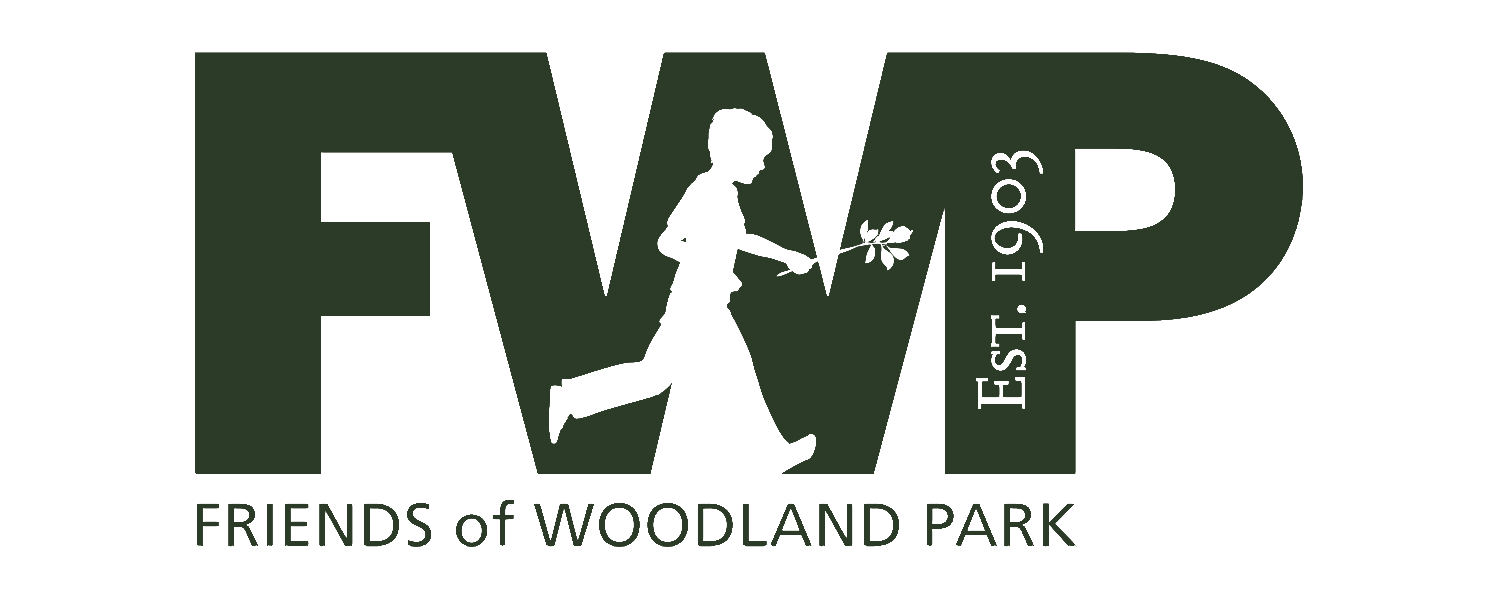White AshFraxinus americana
No. in Woodland Park: 10
No. in good health: 5
No. in fair health: 4
No. in poor health: 1
Fraxinus americana (white ash or American ash) is a species of ash tree native to eastern and central North America. It is found in mesophytic hardwood forests from Nova Scotia west to Minnesota, south to northern Florida, and southwest to eastern Texas. Isolated populations have also been found in western Texas, Wyoming and Colorado, and the species is reportedly naturalized in Hawaii.
The name White Ash derives from the glaucous undersides of the leaves. It is similar in appearance to the Green Ash, making identification difficult. The lower sides of the leaves of White Ash are lighter in color than their upper sides, and the outer surface of the twigs of White Ash may be flaky or peeling. Green Ash leaves are similar in color on upper and lower sides, and twigs are smoother. Despite some overlap, the two species tend to grow in different locations as well; White Ash is a forest tree that commonly occurs alongside Sugar Maple while Green Ash is a pioneer species that inhabits riparian zones and disturbed areas.
White ash is one of the most used trees for everyday purposes and, to keep up with high demand, is cultivated almost everywhere it can be. The wood is white and quite dense (within 20% of 670 kg/m3), strong, and straight-grained. It is the timber of choice for production of baseball bats and tool handles. The wood is also favorable for furniture and flooring. Woodworkers use the timber mainly for internal uses due to high perishability in contact with ground soil. It is also used to make lobster traps. Recently, it has also become a popular choice for solidbody electric guitar wood as well. It makes a very servicable longbow if properly worked. The wood was used in ceiling fan blades from the 1970s through the mid-1980s, though cane was sometimes simulated with plastic then. It is no longer used for ceiling fan blades in most countries.


